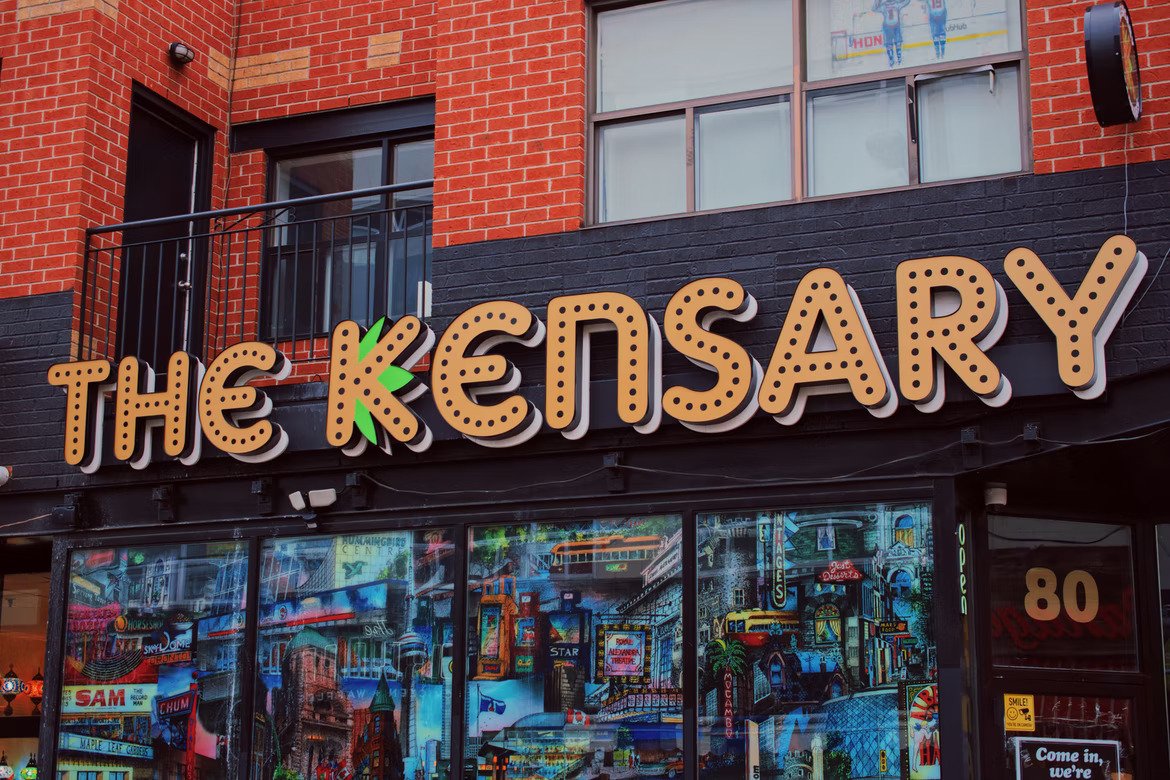You are here
Home 🌿 Marijuana Politics 🌿 Can municipalities do anything about the number of cannabis shops popping up everywhere? 🌿Can municipalities do anything about the number of cannabis shops popping up everywhere?

Nowadays, you can't walk very far down the streets of downtown Toronto, and likely other major cities, without seeing a cannabis store. A product that was illegal a short time ago is now widely available to the public. Before January 22, 2019, municipalities could opt out of cannabis retail stores within their municipal boundaries.1 Some of those that haven't are left wondering what their options are.
Can municipalities do anything about the volume and density of cannabis shops showing up everywhere? In short, while they can have their concerns heard, their right to be heard doesn't mean they have a right to be obeyed.
To become a licensed cannabis store, one must send an application to the Registrar.2 Before approving a license, the Registrar must provide notice to the municipality which may make written submissions against granting the license.3 These submissions need to discuss whether issuing the license is in the public interest, based on the needs and wishes of residents.
Nothing in the Act, however, compels the Registrar to take action as a result of the municipality's submissions. The only other avenue for a municipality to prevent or restrict the establishment of cannabis stores, through the establishment of by-laws, is prohibited if they have already opted in.4
The Registrar makes the final decision about licensing approval, based on enumerated factors in the Act, including the broad language of "any other circumstance that may be prescribed."5 This could also be used by municipalities to make an argument against granting a license. Ultimately, the licensing decision will come down to a municipality persuading the Registrar that the cannabis store in question is against the public interest. The Registrar's decisions can be subject to further review if one side or the other is dissatisfied with the result.6
In British Colombia, a recent case held that a strata, which is an entity similar to a condominium corporation in Ontario, can pass by-laws to prevent a potential licensee from undertaking cannabis-related activities.8 Though this case has not been applied in Ontario, it suggests that a condominium corporation may be able to pass by-laws to restrict cannabis stores from opening on their property, for example, within the common areas of a lobby or in street-level retail locations.Despite the municipalities having little control over the Registrar's decision, there are still some restrictions on issuing a license. For example, storefronts cannot be located within 150 metres of schools (as defined in the Education Act).7
Potential objections to the proliferation of cannabis stores are still being explored. The widespread availability of legal cannabis is a new phenomenon, limiting the amount of available research on its effect on public health. A study published in the Journal of Cannabis Research found that the number of stores increases the likelihood of some sociological groups to co-use cannabis and nicotine.9 However, as data continues to be gathered, the public health implications will be better understood.
On the other hand, municipalities embarking on a campaign of 'pearl-clutching' fears that cannabis retailers will contribute to the downfall of society and the creation of skid rows will likely be poorly received by the Registrar. We are far past the days of Reefer Madness. There is ample evidence that cannabis is regularly consumed responsibly by members of various sociocultural groups, ages, backgrounds, and across almost every demographic. Municipalities seeking to oppose a given application would be wise to avoid unfounded fears and focus on demonstrable data of potential harm or impacts on the public interest.
It remains to be seen what kind of applications municipalities may bring to control the density and volume of cannabis stores appearing in their communities. Perhaps evolving key public health indicators will form the basis of an argument that the Registrar's licensing decision should be reviewed. Of course, the continued financial viability and market for cannabis products will also speak for itself and may bolster arguments that these retailers ought to be treated no differently than other licensed establishments like bars or lottery retailers. It is not uncommon to find many of those within a given neighbourhood. Accordingly, the best control on the number of stores may be economics. For the time being, however, the chances of cannabis retailers continuing to open with some regularity and volume will be high. Very high.
420 Intel is Your Source for Marijuana News
420 Intel Canada is your leading news source for the Canadian cannabis industry. Get the latest updates on Canadian cannabis stocks and developments on how Canada continues to be a major player in the worldwide recreational and medical cannabis industry.
420 Intel Canada is the Canadian Industry news outlet that will keep you updated on how these Canadian developments in recreational and medical marijuana will impact the country and the world. Our commitment is to bring you the most important cannabis news stories from across Canada every day of the week.
Marijuana industry news is a constant endeavor with new developments each day. For marijuana news across the True North, 420 Intel Canada promises to bring you quality, Canadian, cannabis industry news.
You can get 420 Intel news delivered directly to your inbox by signing up for our daily marijuana news, ensuring you’re always kept up to date on the ever-changing cannabis industry. To stay even better informed about marijuana legalization news follow us on Twitter, Facebook and LinkedIn.




